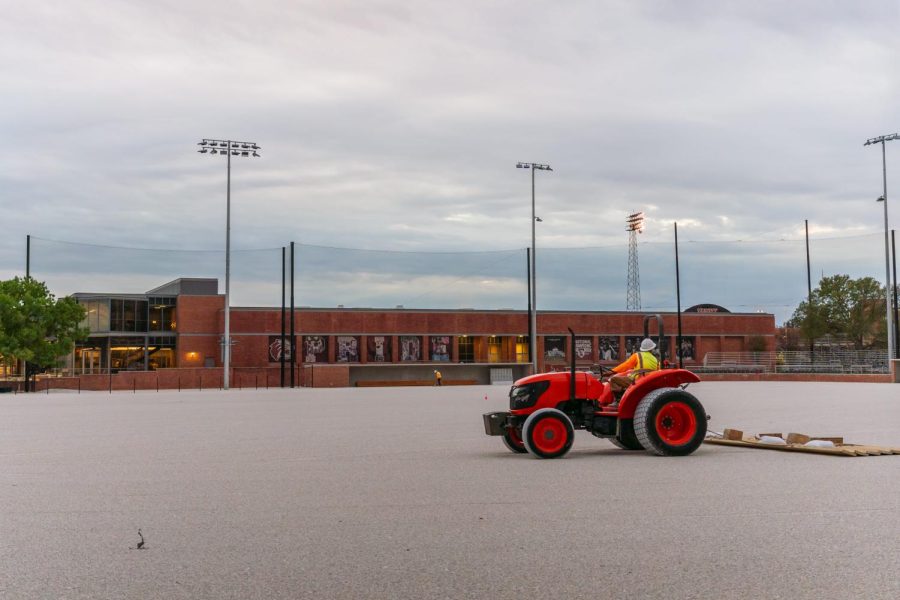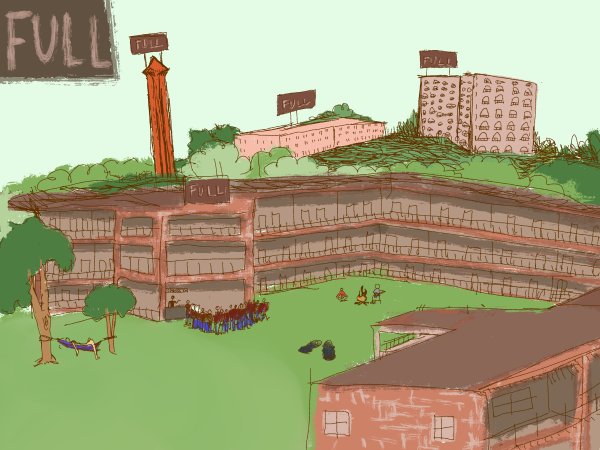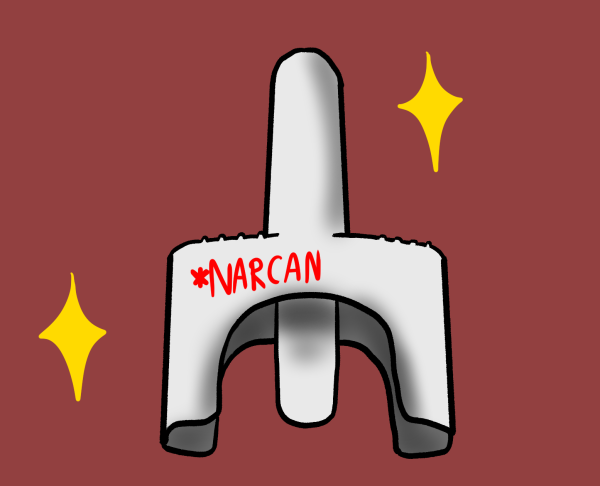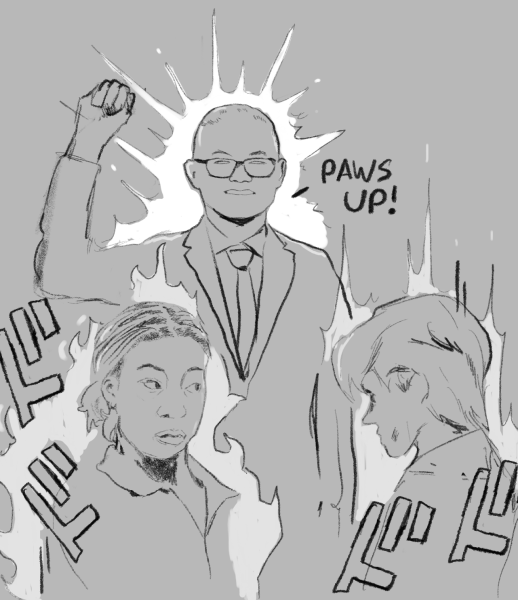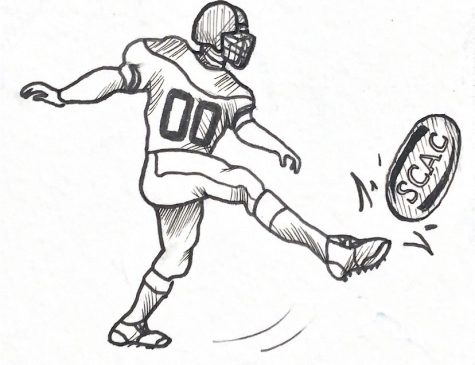Almost there: renovations to the baseball field and tennis courts
Baseball field renovation results in closed parking lot and inaccessible tennis courts
Construction crews lay a flat bed of concrete as they work to replace the recognizable baseball field on Lower Campus.
Upon arriving on campus this fall, students were greeted by the dulcet tones of bulldozers and beeping to the right of the William H. Bell Athletic Center (Bell Center). Construction workers have laid out turf, indicating that a renovated baseball field will soon join the lineup of facilities on Trinity’s campus. However, undertaking this large-scale project resulted in broken water lines and the task of dealing with COVID restrictions.
Seth Asbury, the associate director of athletics for facilities and event management, oversees athletic facilities and events and understands the many obstacles that creating the new baseball field has brought.
“We were supposed to start this project pre-pandemic, but because renovations had to be put on hold, we started construction this past Summer. … [The field] should be finished by Thanksgiving,” Asbury said.
Tyler Pettit, a fourth-year Trinity student and catcher on the Trinity University baseball team, has had to reimagine his fall baseball practice because of the construction.
“We haven’t had any access to a field so our main practice is trying to get physically stronger,” Pettit said.
Due to a lack of access to a traditional baseball facility, the process of preparing for the spring baseball season has become repetitive.
“When you don’t have a field and don’t get to play baseball, you get a little restless just running and lifting weights week-to-week,” Pettit said.
According to Asbury, any construction project requires planning, but with the baseball field’s location in the middle of campus, the construction team has had to carefully avoid utility and water lines.
“The field is at least thirty years old, the lights were fifty years old, so the electrical wiring all had to be changed out. … We’ve broken a couple of water lines during construction,” Asbury said.
The renovations to the baseball field have not only restricted access to the facility but parking lot U is occupied by piles of white dirt and machinery where students would normally park.
Another side effect of construction is the limited access to the Pittman tennis courts (located near the Bell Center and Thomas residence hall). Due to wood, tubing and machinery crowding the courts, the limited space available leaves the Pittman courts only usable for playing pickleball. Helene Le Gall, a junior environmental studies and Spanish double-major and vice president of the club tennis team, has known the Pittman courts to be unusable for playing tennis since her first year.
The lack of communication about the future of the Pittman courts students is the main frustration for Le Gall. “There isn’t any signage or explanation as to what the materials are doing there if they’ll be gone and what’s going to happen to the courts,” Le Gall said.
Once the renovations to the baseball field are complete, parking and recreational tennis playing will be in higher supply. “Lot U and the courts have been a holding site for all the construction equipment. Once construction is done, that’ll be all cleaned up and the [Pittman courts] will be a usable space again,” Asbury said.
Even though the Butch Newman Tennis Center, the Al G. Hill Jr. Stadium and the Pittman Tennis Courts are available for the tennis community at Trinity to use, all of those facilities are shared by the men’s, women’s and club tennis teams as well as any alumni and faculty members who want to use the spaces.
“We want to make sure that the courts are available to everybody. Generally, scheduling isn’t too much of a problem, but when there are tournaments for the men’s and women’s teams, the club team has to shift to another space,” Le Gall said.
According to Le Gall, to account for the limited tennis court space due to the renovation of the baseball field, the existing tennis courts should be made as accessible as possible.
“Locking the courts less, adding lights to the Hill courts and leaving the lights at the Bell courts on past 10 p.m. [would make the courts more accessible],” Le Gall said.
According to Asbury, campus renovations are ultimately a sign of progress for the Trinity community.
“As the campus continues to grow and get better, and we want to make sure that we’re providing facilities for all students that want to use these spaces. … It’s great when we can all work together despite frustrations and look forward to the end product,” Asbury said.

Hi! My name is Monica Martinez, and I’m a Sophomore business major. I am a news reporter for the Trinitonian and I love cats! I’m a trumpet player...

My name is Sam (he/him) and I'm a photographer here with the Trinitonian. I'm a senior Communications and German double major from Austin, Texas, and...

